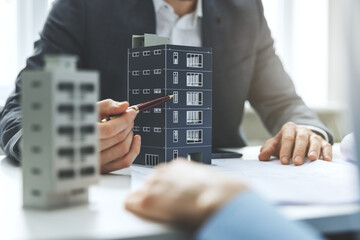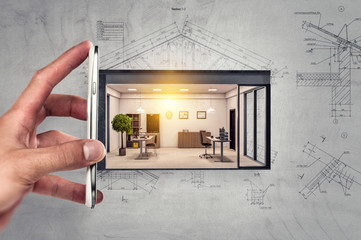Kevin Case
Case Development Services

Real estate is a constantly evolving market that has remained crucial to infrastructure for many years. As companies look to expand their scope to create cutting-edge properties, it is crucial that they understand the importance of the multiple steps in the development process. This combined with a deep understanding of the wants and needs of consumers is critical for crafting successful projects that stand the test of time. Kevin Case- Principal of Case Development Services and Partner of Mahama Development- realizes that 21st century projects that properly account for changes in the industry and consumer expectations empower real estate to adapt and reach sustainable growth.

With experience as a developer and over three decades of work experience in administrative roles held within development companies, Kevin Case speaks to how vital it is that members of the industry share their real estate insights to spur growth and evolution in the field. Through sharing his own insights on several aspects of design, construction, management, and business development, Kevin hopes to contribute to conversations currently impacting the evolution of trends and technologies of his industry.
Kevin Case Bio
Kevin Case has built a name for himself through his experience in real estate development and construction. For over three decades, Kevin worked as a senior level commercial real estate developer, with over 15 years of experience as the Executive VP of one of North America’s largest privately held real estate development companies. In these roles, Kevin became known for his attention to detail, dedication to his teams, and skill in facilitating everything from pre-construction services, design, budgeting, scheduling and execution. These qualities set Kevin apart early into his career and, since, he has been responsible for leading development projects totaling over $3.5B. In 2012, Kevin Case became Principal of Case Development Services managing client and business relationships while keeping the company on pace with its set goals.
Kevin Case joined Mahaman Development- the property development element of Maha and Setai branded resorts and hotels- in 2018. At Mahaman, Mr. Case leads the design and construction of a 23,000 acre ultra-luxury resort located in California’s wine country. This project includes features such as polo and equestrian facilities, an 18-hole golf course, winery, hotel, vineyards, gardens, residential homes, and more.
Kevin is regarded for his hands-on approach to business, ability to build fruitful professional relationships, and penchant for delivering on cutting-edge, profitable projects. Notably, Kevin Case led the development of Ten Trinity Square in London where he was responsible for the historical asset acquisition, design, and planning consents for converting the use to an ultra-luxury hotel and residences. In addition to this milestone, Kevin has contributed to multiple successful projects in North America, Europe, Asia, and the Caribbean, where he has worked on properties that highlight and embrace the natural beauty of his development sites.
Kevin Case of Case Development Services on the Importance of Design in Commercial Real Estate

Leaders in the commercial real estate market know that design remains an important component of successful development projects. After all, designers are responsible for bringing concepts from page to construction, and the role that it plays in the development process cannot be overstated.
Kevin Case of Case Development Services recognizes that many people outside the realm of commercial real estate often do not consider just how many aspects of the development process that design influences. Here, Kevin explores just a few of the ways that design contributes to bringing commercial real estate projects to life.
Keeping Building Designs in Line with Codes
Building codes are established to protect buildings, and their occupants, from environmental factors and extreme natural events such as earthquakes, wildfires, flooding’s, etc. In large part, building codes establish a buildings quality, safety and energy performance for years to come through initial design and construction decisions which determine operational and maintenance costs for the life of the buildings.
Regularly upgraded building codes ensure new products, technologies and building practices make their way into buildings at the right time. Regular, incremental improvements allow for better and smarter buildings as cost effectively as possible.
New energy codes are making a major contribution toward solving today’s energy concerns. Buildings consume vast amounts of natural resources, accounting for nearly 40 percent of total US energy consumption and 40 percent of greenhouse gas emissions. Sustainable technologies are advancing at a rapid pace and driving many design initiatives and construction methods.
Adapting to the Changing Needs of Consumers
One of the most interesting aspects of commercial real estate development, according to Kevin Case of Case Development Services is that the industry is in a constant state of adaptability and evolution. What is common for designs of one era are not necessarily going to be in the next, and what individuals want to see in everything from their apartment buildings to retail buildings are always changing to fit their needs and wants. For example, design has become much more modern over the past couple decades, but certain aspects of older design are becoming sought after among aficionados. Staying in tune with the evolving needs of consumers whether they be amenities, thoughtful building design, mixed use spaces, or fixtures is an important responsibility that design teams hold.
Pushing Evolution in Commercial Real Estate Design
While design teams are certainly responsible for conforming and delivering on the expectations of the developers, investors, and buyers, they also certainly push the needle forward towards evolution in the space as well. Many of the most longstanding practices in commercial real estate design became the norm because innovative designers took the parameters, they were given to push the boundaries of what is expected of a space. For example, the need to adapt to sustainable practices has been growing as developers face pressures to include ethical systems in their processes. Designers around the world have taken this to heart and have created spaces that minimally impact the environment while finding interesting and creative means to repurpose materials for thoughtful building designs.
Future Posts
Kevin Case acknowledges that real estate development is an industry in which leaders need a multitude of skills to successfully account for all of a project’s moving parts. Because there are multiple facets of a successful development such as site selection, entitlements, programming, scheduling, budget allocation, acquisition intricacies, team selection, etc., real estate is always evolving to increase efficiency, lower environmental impact, and create cutting-edge designs that properly cater to various audiences. For this reason, Kevin aspires to update this website with a variety of insights that will empower those interested in learning more about the space. Future posts will include topics such as how land is acquired for development projects, skills that best enable a development professional to find success in their field, and some of the work that goes into luxury development projects.